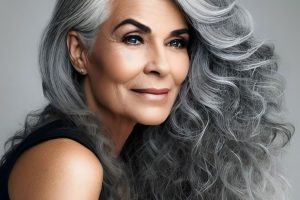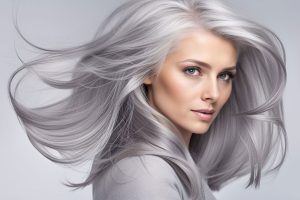Hair Loss: An In-depth Guide for Beauticians to Educate and Support Clients
The concern of hair loss is not limited to dermatologists and endocrinologists; it’s a ubiquitous issue that often finds its way into a beautician’s salon. Clients come not only for beauty services but also for expert advice on maintaining the glory of their locks. As a beautician, understanding the science of hair loss and its prevention can add substantial value to your service. This comprehensive guide aims to equip you with tips, advice, and in-depth information on addressing hair loss effectively.

A Multifactorial Problem: Understanding the Causes of Hair Loss
Nutritional Factors
- Nutrient Distribution: The body has a hierarchy for nutrient distribution, with vital organs taking precedence over hair. Therefore, a balanced diet is essential for hair health.
- Regeneration Time: It takes three to four months for hair follicles to regenerate. This means any positive changes due to diet or supplements will become apparent after this period.
Hormonal Influences
- Androgens: Hormones like testosterone play a vital role in affecting the dermal papilla and the production of keratinocytes, contributing to hair follicle miniaturization.
- Thyroid Hormones: An underactive or overactive thyroid can lead to hair loss. This situation often requires medical intervention.
Styling and Physical Damage
- Heat Styling: Excessive use of heat styling tools can weaken hair strands.
- Chemical Treatments: Coloring, bleaching, and perms alter the natural structure of the hair, leading to potential damage and hair loss.
The Beautician’s Toolbox: Providing Effective Solutions
Nutritional Guidance
- Dietary Tips: Suggest incorporating nutrient-rich foods that are high in protein, iron, and omega-3 fatty acids to improve hair health.
- Supplement Recommendations: Advise clients on the possibility of taking biotin or other hair-specific supplements, reminding them to consult a healthcare provider for personalized advice.
Styling Education
- Less is More: Educate clients about the risks of over-styling and encourage them to give their hair rest days.
- Heat Protectants: Recommend the use of heat protectants before using heat styling tools.
- Chemical Caution: Inform clients about the long-term risks associated with chemical treatments and provide alternatives.
Tailored Product Suggestions
- Shampoo and Conditioners: Recommend sulfate-free shampoos and conditioners formulated for thinning hair.
- Leave-In Treatments: Suggest products like serums or oils that can nourish the hair overnight.
Setting Boundaries: When to Refer to a Medical Professional
As much as you’d like to help, there are limits to your expertise as a beautician. Complex cases involving hormonal imbalances or underlying health conditions should be referred to healthcare providers for medical evaluation and treatment.
Emotional Support and Trust-Building
Finally, it’s essential to approach this topic with sensitivity. Hair loss can be emotionally taxing, and your supportive attitude can make a world of difference. Listen empathetically and offer sound advice, strengthening the trust between you and your clients.
Conclusion
As a beautician, you are often the first point of contact for people concerned about their hair health. While you are not a medical professional, your knowledge and understanding of hair loss can serve as a guiding light for clients. Whether it’s advising on diet and styling or identifying when medical advice is necessary, your informed input can have a profound impact. The aim is not just to beautify but also to educate, empower, and elevate the client experience.






